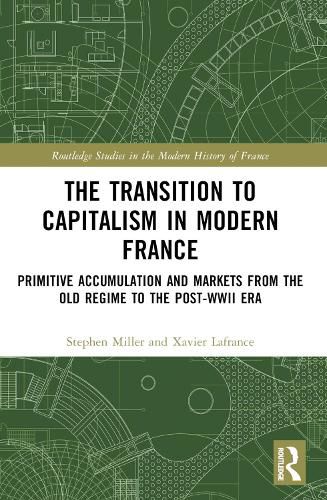Readings Newsletter
Become a Readings Member to make your shopping experience even easier.
Sign in or sign up for free!
You’re not far away from qualifying for FREE standard shipping within Australia
You’ve qualified for FREE standard shipping within Australia
The cart is loading…






Historians, since the 1960s, argue that the French economy performed as well as did any economy in Europe during the eighteenth and nineteenth centuries thanks to the opportunities for profit available on the market, especially the large consumer market in Paris. Whatever economic weaknesses existed did not stem from the social structure but from exogenous forces such as wars, the lack of natural resources or slow demographic growth.
This book challenges the foregoing consensus by showing that the French economy performed poorly relative to its rivals because of noncapitalist social relations. Specifically, peasants and artisans controlled lands and workshops in autonomous communities and did not have to improve labor productivity to survive. Merchants and manufacturers cornered markets instead of being subject to the market's competitive imperatives.
Thus, distinctive features of capitalism-primitive accumulation (the dispossession of peasants and artisans) and the competitive obligation faced by merchants and manufacturers to reinvest profits in order to keep the profits-did not prevail until the state imposed them in a process lasting for a century after the 1850s. For this reason, it was not until the 1960s that France caught up to (and in some cases surpassed) its economic rivals.
$9.00 standard shipping within Australia
FREE standard shipping within Australia for orders over $100.00
Express & International shipping calculated at checkout
Historians, since the 1960s, argue that the French economy performed as well as did any economy in Europe during the eighteenth and nineteenth centuries thanks to the opportunities for profit available on the market, especially the large consumer market in Paris. Whatever economic weaknesses existed did not stem from the social structure but from exogenous forces such as wars, the lack of natural resources or slow demographic growth.
This book challenges the foregoing consensus by showing that the French economy performed poorly relative to its rivals because of noncapitalist social relations. Specifically, peasants and artisans controlled lands and workshops in autonomous communities and did not have to improve labor productivity to survive. Merchants and manufacturers cornered markets instead of being subject to the market's competitive imperatives.
Thus, distinctive features of capitalism-primitive accumulation (the dispossession of peasants and artisans) and the competitive obligation faced by merchants and manufacturers to reinvest profits in order to keep the profits-did not prevail until the state imposed them in a process lasting for a century after the 1850s. For this reason, it was not until the 1960s that France caught up to (and in some cases surpassed) its economic rivals.